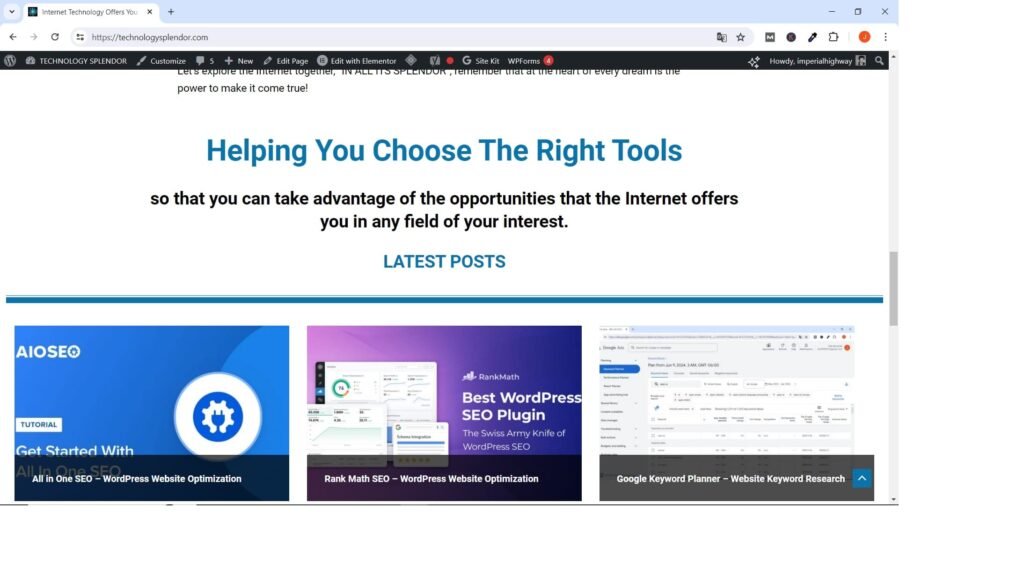
Blogs are a powerful tool to share knowledge, experiences, skills, monetize your blog or the website it belongs to, improve online visibility, increase website traffic and boost conversions.
A blog (short for “weblog”) is an online journal or informational website that displays information in reverse chronological order, with the latest posts appearing first. It is a platform where writers, or bloggers, share their views on individual subjects. Blogs are typically updated frequently and can be run by an individual, a group of individuals, or a company. In fact, you are on a blog right now.
Starting at age 44, your energy, metabolism, and overall well-being may be silently declining. Don’t wait for symptoms.
Blogs - History and Evolution
Origins
The concept of blogging traces its origins back to the late 1990s. The term “weblog” was coined by Jorn Barger in 1997, referring to a website where he logged his internet activities. This term was later shortened to “blog” by Peter Merholz in 1999. Early these were primarily personal online diaries where people shared their thoughts and daily experiences.
Growth and Development
In the early 2000s, blogging began to gain popularity with the introduction of free blogging platforms like Blogger (launched in 1999) and WordPress (launched in 2003). These platforms made it easier for individuals to create and maintain blogs without needing extensive technical knowledge.
Rise of Professional Blogs
As the internet continued to grow, so did the potential for blogging as a source of income. By the mid-2000s, many bloggers started monetizing their blogs through advertisements, sponsored posts, and affiliate marketing. This era saw the emergence of professional bloggers who could earn a living solely from their blogging activities.
Modern Blogs
Today, blogging is an integral part of the internet. There are millions of blogs covering an extensive range of topics, from personal finance and travel to technology and food. These are not only run by individuals but also by companies and organizations as part of their marketing and communication strategies.
Types of Blogs
Personal Blogs
These are online diaries where individuals share their thoughts, experiences, and daily activities. These often focus on a wide range of topics, reflecting the diverse interests of the blogger.
Niche Blogs
These focus on a specific topic or industry. Some examples include:
- Tech Blogs: Cover the latest in technology, gadgets, and software.
- Food Blogs: Share recipes, cooking tips, and restaurant reviews.
- Travel Blogs: Provide travel tips, destination guides, and personal travel experiences.
- Fashion Blogs: Discuss fashion trends, style tips, and reviews of fashion products.
Corporate Blogs
Corporate blogs are maintained by businesses to communicate with their customers, promote products or services, and share industry news. These blogs are often part of a larger content marketing strategy.
Professional Blogs
Professional blogs are created by individuals or groups who seek to build a professional brand. These blogs often focus on sharing expertise in a particular field, such as marketing, finance, or health.
Personal Development Blogs
These blogs focus on self-improvement, offering advice and insights on personal growth, productivity, and mental health.
News Blogs
News blogs provide updates on current events, often focusing on a specific geographic area or industry. They are a modern take on traditional news media, often offering more opinionated content.
Components of the Blogs
Posts
Blog posts are the individual entries or articles published on a blog like this one you are reading right now. They are usually written in an informal or conversational style and cover a specific topic.
Categories and Tags
These organize blog posts and make it easier for readers to find related content. Categories are broad groups that encompass multiple posts, while tags are more specific keywords associated with a post.
Comments
Many blogs allow readers to leave comments on posts. This feature fosters interaction between the blogger and their audience, creating a sense of community.
Archive
A blog archive is a collection of past posts organized by date. It allows readers to browse older content easily.
Sidebar
The sidebar is a column on the side of a blog that can include various widgets, such as a search bar, recent posts, popular posts, social media links, and advertisements.
Footer
The footer is located at the bottom of a blog and often contains additional navigation links, contact information, and social media icons.
Benefits of Blogs
Personal Expression
Blogging provides a platform for individuals to express their thoughts, opinions, and creativity. It is a way to share one’s voice with a global audience.
Building a Community
Blogs can foster a sense of community among readers who share similar interests. Comment sections and social media sharing can lead to engaging discussions and connections.
Professional Development
Blogging can enhance one’s professional reputation by showcasing expertise in a particular field. It can lead to new opportunities such as job offers, speaking engagements, and collaborations.
Income Generation
Many bloggers monetize their blogs through various methods, including advertising, sponsored content, affiliate marketing, and selling products or services.
SEO Benefits
Regularly updated blogs can improve a website’s search engine optimization (SEO). High-quality content that is relevant to the audience can attract organic traffic from search engines.
Knowledge Sharing
Blogs are an excellent way to share knowledge and educate others. Whether it’s providing how-to guides, tutorials, or industry insights, blogs can be valuable resources for readers.
Challenges of Blogs
Time-Consuming
Creating high-quality content consistently requires a significant time investment. Researching, writing, editing, and promoting posts can be demanding.
Competition
With millions of blogs on the internet, standing out and attracting a loyal audience can be challenging. Bloggers must find ways to differentiate their content and offer unique value.
Technical Skills
Although platforms like WordPress and Blogger make it easier to start a blog, maintaining a blog may still require some technical skills, such as basic HTML, CSS, and SEO knowledge.
Monetization Difficulties
While some bloggers earn a substantial income, many struggle to monetize their blogs effectively. It often takes time and effort to build a profitable blog.
Content Fatigue
Maintaining creativity and consistently producing fresh content can lead to burnout. Bloggers must find ways to stay motivated and inspired.
Blogs Platforms
WordPress
WordPress is the most popular blogging platform, offering both a free hosted version (WordPress.com) and a self-hosted version (WordPress.org). It is highly customizable and has a vast library of plugins and themes.
Blogger
Blogger is a free blogging platform owned by Google. It is user-friendly and integrates well with other Google services, but it offers fewer customization options compared to WordPress.
Medium
Medium is a publishing platform that combines blogging with social networking. It focuses on high-quality content and has a built-in audience, making it easier for bloggers to reach readers.
Tumblr
Tumblr is a microblogging platform that allows users to post multimedia content in a short-form blog. It is popular for its simplicity and social features.
Wix
Wix is a website builder that includes blogging capabilities. It is known for its drag-and-drop interface, making it easy for beginners to create and customize blogs.
Squarespace
Squarespace is another website builder with blogging features. It offers beautiful design templates and is known for its ease of use and excellent customer support.
Blogs Best Practices
Quality Content
Creating high-quality, valuable content is the cornerstone of successful blogging. Posts should be well-researched, informative, and engaging.
Consistency
Consistency is key to maintaining an audience. Establishing a regular posting schedule helps keep readers engaged and coming back for more.
SEO Optimization
Optimizing blog posts for search engines can increase organic traffic. This includes using relevant keywords, optimizing meta descriptions, and building backlinks.
Engaging with Readers
Interacting with readers through comments, social media, and email helps build a loyal community. Responding to comments and feedback shows that the blogger values their audience.
Promoting Content
Promoting blog posts through social media, email newsletters, and collaborations with other bloggers can help reach a wider audience.
Analyzing Performance
Using analytics tools to track blog performance can provide insights into what works and what doesn’t. This data can guide content strategy and improve overall blog effectiveness.
Blogging has evolved from its humble beginnings as online diaries to a powerful platform for personal expression, professional development, and business marketing. Despite the challenges, the benefits of blogging make it a worthwhile endeavor for many. Whether for personal satisfaction, community building, or income generation, blogging remains a relevant and dynamic medium in the digital age.
Discover More of Technology Splendor: Explore Our Other Sites
Your Health is your Best Investment
Energy, clarity, and balance are the foundation of every dream. Without health, wealth loses its shine and relationships lose their spark. Discover strategies to strengthen your body, sharpen your mind, and energize your spirit.
Learn How to Protect It →Relationships Give Life Meaning
Health gives you energy. Wealth gives you freedom. But only deep, authentic relationships give life true purpose. Discover the tools to connect, love, and communicate at your best.
Improve your Personal and Business Relationships
